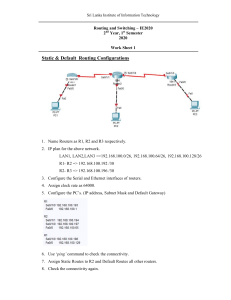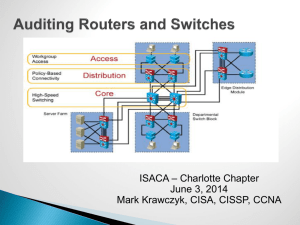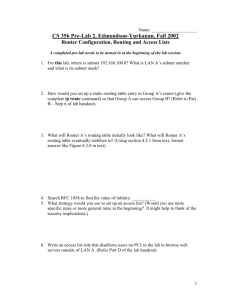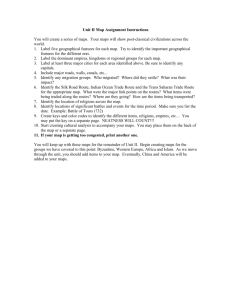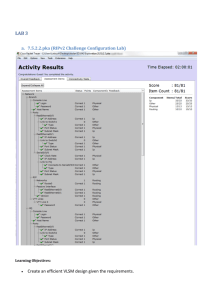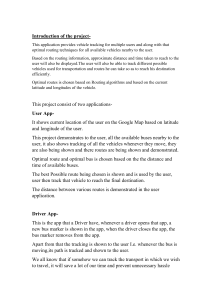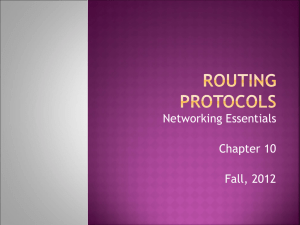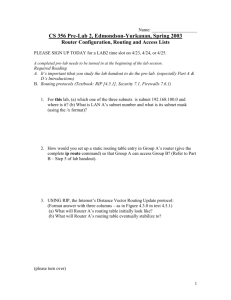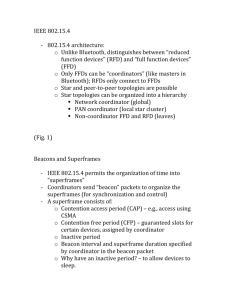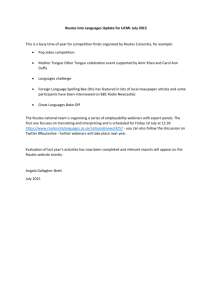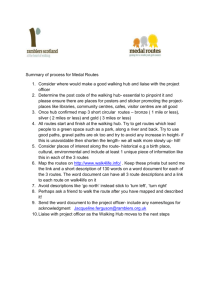Key Terms
advertisement
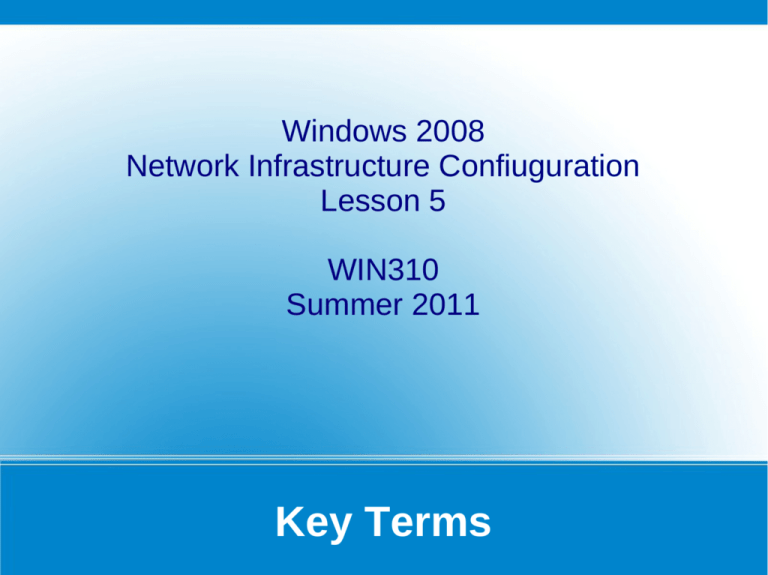
Windows 2008 Network Infrastructure Confiuguration Lesson 5 WIN310 Summer 2011 Key Terms 802.1X component that requests authentication credentials from supplicants. Authenticator 802.1X component that verifies the supplicant’s authentication credentials. Authorization Server Routing table entry that indicates the route that will be used if no other defined routes match a particular destination. Default Route Dial-Up Networking (DUN) Creates a physical connection to a remote network by using a dial-up device such, as a POTS modem or a demand-dial ISDN modem. DUN Routes to destination networks for which the router in question is directly attached. Directly Attached Network Routes 802.1X packet sent from a supplicant to an authenticator, instructing the supplicant to place the port back in an unauthenticated state. EAP-Logoff Data at Layer 2 of the OSI model (the Data Link Layer) is organized into frames for processing by higher levels of the OSI model. Frames Routing table entry that defines a route to a particular destination host rather than a destination network. Host Routes Network device that operates at the Physical Layer (Layer 1) of the OSI model. Hub Please refer to “router” Layer 3 device Reserved IP address (255.255.255.255) used as the broadcast address for all networks and routers. Limited broadcast address Reserved IP address (127.0.0.1) used for troubleshooting and testing. Loopback address Column in a routing table that indicates the cost of using one route instead of another. Metric (route) Standard for allowing or disallowing network access based on administrator-specified criteria. Network access control NPS - Windows Server 2008 implementation of RADIUS. Network Policy Server (OSPF) Routing protocol in which individual routers maintain a database of all reachable networks that it is aware of and share this database with neighboring routers. Open Shortest Path First Data at Layer 3 of the OSI model (the Network Layer) is organized into packets for transmission to local or remote networks. Packets Layer 1 of the OSI model, where bits of data interface with the physical network media. Physical Layer Routes to destination networks that the router in question is not directly attached to. Remote network routes Layer 3 network device that transmits data between local and remote networks. routers Used in lieu of static routes in more complex network environments to simplify the administration of network routing. Routing protocols Callback option that allows the user to specify the callback number at the time the connection is made. Set by Caller Router running on a computer running an operating system, such as Windows Server 2008, that can also be used for other functions. Software based router (MPPE 128-bit) 128-bit encryption used for VPN connections. Strongest Encryption 802.1X device that is seeking access to the network, such as a laptop attempting to access a wireless access point. Supplicant Layer 2 network device that examines the source and destination MAC address of the network data to determine where the data should be sent. Switch (VPN) Creates a secured logical connection to a remote network over a non-secure network, such as the Internet. Virtual Private Network

